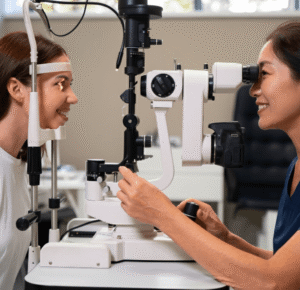Overview
Werner Syndrome is a rare, inherited disorder characterized by premature aging and age-related diseases, typically beginning in adolescence or early adulthood. Often called “adult progeria,” this condition causes individuals to appear significantly older than their actual age and develop conditions like cataracts, diabetes, and cardiovascular disease much earlier than normal. Although rare, early diagnosis can help manage symptoms and improve quality of life.
What is Werner Syndrome?
Werner Syndrome is a genetic disorder caused by mutations in the WRN gene, which plays a crucial role in maintaining DNA integrity and repair. The condition leads to the accelerated aging of tissues and organs. Symptoms usually start in the late teens or early twenties and progressively worsen. People with Werner Syndrome typically have a shorter lifespan, often living into their 40s or 50s, primarily due to cancer or heart disease.
Symptoms
Common signs and symptoms of Werner Syndrome include:
- Short stature and lack of growth after puberty
- Premature graying and thinning of scalp hair
- Aged appearance, including wrinkled skin and bird-like facial features
- Early cataract formation (usually bilateral)
- Skin ulcers, especially on feet or ankles
- Type 2 diabetes mellitus
- Osteoporosis and skeletal abnormalities
- Voice changes (high-pitched or hoarse)
- Atherosclerosis and cardiovascular complications
- Increased risk of cancers (e.g., sarcomas)
Causes
Werner Syndrome is caused by mutations in the WRN gene on chromosome 8. This gene produces a protein involved in DNA replication, repair, and stability. A faulty WRN gene leads to the accumulation of DNA damage, resulting in the signs of premature aging.
- Autosomal recessive inheritance – both parents must carry one copy of the mutated gene for their child to be affected.
Risk Factors
Risk factors for Werner Syndrome include:
- Family history of the condition
- Consanguinity (parents who are blood relatives), which increases the likelihood of inheriting two copies of the defective gene
- Higher incidence in certain populations, such as in Japan or Sardinia, due to founder mutations
Complications
Werner Syndrome can lead to multiple severe complications, including:
- Early onset of age-related diseases (e.g., diabetes, heart disease, cataracts)
- Chronic non-healing skin ulcers
- Infertility
- Soft tissue calcification
- Osteoporosis and bone fractures
- Cancer, particularly soft tissue sarcomas
- Life-threatening cardiovascular disease
- Reduced life expectancy (often into mid-40s to 50s)
Prevention
Werner Syndrome cannot be prevented, but certain measures can reduce complications:
- Genetic counseling for families with a history of the disorder
- Prenatal or carrier testing in at-risk populations
- Regular screening and proactive management of complications such as diabetes, cancer, and cardiovascular disease
- Healthy lifestyle choices to reduce additional cardiovascular or metabolic risks
Treatment Options in Korea
Although there is no cure for Werner Syndrome, South Korea offers comprehensive, multidisciplinary care to manage its symptoms and complications. Available services include:
- Genetic testing and diagnosis at top centers like Seoul National University Hospital and Asan Medical Center
- Endocrinology services for managing diabetes and hormonal imbalances
- Ophthalmologic care for early cataract surgery
- Cardiology for monitoring and treating vascular disease
- Dermatology and wound care for skin ulcers
- Orthopedics for bone and joint issues
- Oncology screening to detect cancers early
- Psychological counseling to support mental and emotional well-being
Korean healthcare facilities use advanced diagnostic tools and personalized treatment plans to enhance the quality of life for individuals living with Werner Syndrome.













